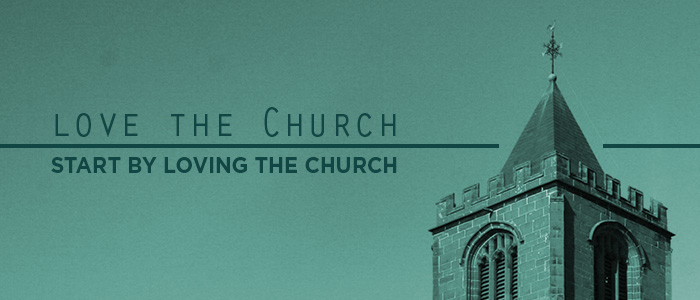Let's Take This Outside (your circle)
 Challenge to Christian bloggers: read a blog you don't usually read, find good content, share it. Reach across the table & find the commonness of the gospel.
Challenge to Christian bloggers: read a blog you don't usually read, find good content, share it. Reach across the table & find the commonness of the gospel.
That's my status on Facebook right now and I mean it.
Last week there was yet another dustup in the blogosphere. You know how it goes. Blogger writes XYZ, Twitter erupts with 140 character-easily misunderstood opinions and all manner of logical fallacies, and 67 Bloggers all respond—many of them entirely missing the point of original blog or demonizing original blogger or making good points of their own which will undoubtedly be rebutted by another 67 bloggers.
Somebody hand me a paper bag and get me off this ride.
One of the ways I try to do damage control in the Christian blogosphere is to stare people in the face and tell them to slow down, breathe, be circumspect, trust Jesus is Who He says He is and that He is building His Church—with or without a troupe of bloggers all juggling their balls in amateur hands.
But one of the most helpful things, I think, a blogger can do is to simply read more than one polarizing post of one blogger. There's something about even reading the "About Me" section of a blog that humanizes a person, takes the monster out of him, or at least shows the monster to be only a suit bought at half-price after October 31st. Underneath they're real people with real lives who cook dinner with their spouses and stub their toes and probably really do love Jesus—even if He's revealed Himself to them in different ways than He has to us.
The beauty of the gospel is that it is for all men, Jews, Greeks, Slaves, Free, Men, Women, but it does not eliminate differences, demanding a dehumanizing clone-like Christianity. No. Instead it reaches inside all the differences and finds the beautiful sameness: broken people in need of a Holy God, and then sends us out to reach all kinds.
So if you're a blogger or a content creator of some sort, can I encourage you to do something radical this week? Go read that publication you shudder to think of. You know which one it is for you. Go read it and read it with the express purpose of finding the beautiful gospel woven through its threads and then share it with your followers. I think we'd be surprised at what might happen.














